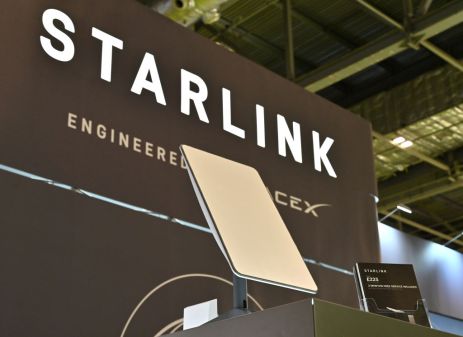FBI and Drug Enforcement Agency are interested in Elon Musk’s Starlink

Two components of the Justice Department recently issued requests for information about the potential use of Starlink, the satellite internet service provided by DOGE head and tech billionaire Elon Musk’s SpaceX.
The FBI and the Drug Enforcement Administration both posted requests for information related to Starlink on March 24. The bureau’s posting is relatively brief and states that the satellite internet service “offers the ability to maintain internet ability while responding, and on scene of, various incidents.” The agency is looking for between five and 100 and Starlink mini dishes and a pooled data plan that can be spread across the dishes.
The DEA states that Low Earth Orbit satellites are particularly helpful for moving vehicles, including command vehicles, remote outposts and tactical boats “operating in regions historically underserved by traditional satellite providers.” The agency says it’s looking for high-speed connectivity using satellite technology both on land and at sea.
The DOJ did not respond to a request for comment by publication time.
The requests for information from the FBI and DEA come at a time of increasing interest from federal agencies in Starlink — and questions about Musk’s potential conflicts of interest given his outsized role in the Trump administration.
Federal contract records show that some agreements for Starlink within the federal government precede the current Trump administration. The State Department has an active agreement for the technology, while a purchase order for a U.S. Coast Guard facility in Western Alaska appears to have kicked in earlier this month. The Interior Department also has a small agreement for the technology. FedScoop has reported on CBP’s work with Starlink, too.
Starlink is far ahead of other providers in launching thousands of satellites internet low-Earth orbit and it’s become a popular service, particularly in less-accessible areas.
Still, there’s growing concern about the government’s use of the SpaceX. Earlier this month, Democrats on the House Oversight committee demanded more information on the recent deployment of Starlink at the White House complex, as well as at the General Services Administration. The Federal Aviation Administration may also expand use of Starlink..
“We are also concerned that the recent installation of Starlink at the White House brings potential cybersecurity and national security risks,” the lawmakers wrote. “Even unclassified information shared over White House Wi-Fi is extremely important to national security, and any lax controls on the new Starlink Wi-Fi system could introduce security exposures and blind spots in the monitoring of networks for anomalous activity.”
One place where the State Department will not turn to Starlink is in Greenland, at least for now. A notice of intent posted last month notes that while the agency was looking for internet providers for the U.S. consulate for a temporary facility it currently operates in Nuuk, only one service — Tusass — met the requirements and complied with an existing memorandum of agreement with the Danish Joint Arctic Command facility.
Once the U.S. opens a full consulate there, the State Department plans to find a more permanent option for its internet service.






